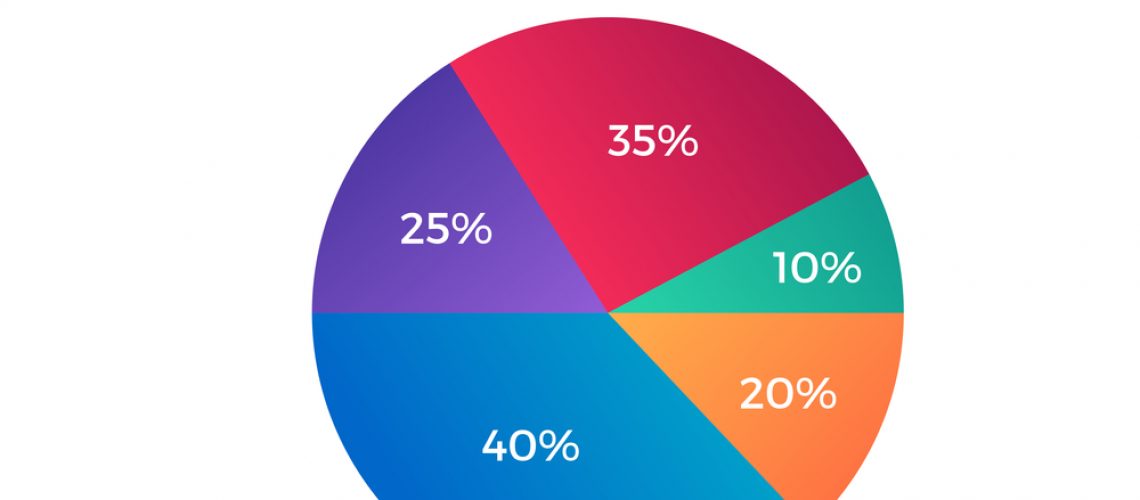In business, people talk about diversifying your investment portfolio. You don’t want to commit all of your money to one sector or in one area. In order to protect yourself in the process, you have to “spread the wealth” so to speak; give attention to different potentials and be open to learning in order to maximize your benefit. In fact, diversification lowers your risk and increases the potential for reward. So too with life, and particularly when you parent or teach twice exceptional students or are twice exceptional yourself.
How do we know diversification works? Analyzing trends after the fact allowed investment professionals to determine the benefit of mitigating risk. Trends are useful. They tell us whether we are headed in the right direction and give us hints on where we should focus next. The annoying thing about trends? We have no idea how we are trending while we are trending. It’s only in hindsight that we find out how our choices affected the outcome.
Recently I had a dreadful bout of the flu. I mean the kind of illness that made me reconsider my life and contemplate my existence (talk about intensity!) As I started to feel better, I realized I was suffering from burn out. I realized that I need a “Life Plan” – like a business plan, I need to divide my life into a pie and decide where I want to focus my time and efforts. I am intentional in my work – I love my work, and I could work twenty-four hours a day every day – but then I would miss out on a lot of other important and wonderful things that make me who I am and that make me happy. Additionally, I realized, spending time on other activities that feed my soul will allow me to bring even more to my work. This is when I realized I need to Diversify My Life Portfolio.
When you parent, teach 2e, or are 2e it’s easy to get caught up in what NEEDS to be done and to feel like that is always the priority. We tend to hyper focus on things, to perseverate and if something needs to be solved, it’s best solved RIGHT NOW. Tunnel vision, blinders, whatever you want to call it, we attend to the immediate need immediately and to the exclusion of all else. We feel like we are doing the right thing until we look back and analyze our trend and see how much we missed or didn’t do while we stayed firmly in our lane. We may realize that resentment creeped in as we attended to “emergency” after “emergency” and left other needs and interests on the roadside.
Sometimes within this context we play whack-a-mole and address several needs within our focus (one child, one boss, one friend, one issue) in succession and around and around again. When this need is a child’s or our own struggles, we give one hundred percent of our attention to the detriment of other people in our family and we often lose sight of attendant strengths. Of course, emergencies are emergencies and take precedence, but we simply cannot always make the same thing or person, THE emergency.
This is when we need to vary our focus, take a break from our most nagging challenge. We are better equipped to address the frequent and ongoing struggles if for a time we shift perspective and focus on things that feel GOOD for a while. Not only will this help calibrate emotions and stress, but we role model how to manage challenge in a moderated way. Find ways to deal with tension and give yourself permission to do something else for a while.
Make a list of things to do that make you feel good. I find these activities fall into three categories:
- Things that are “good for you” or that you are doing for others and therefore you feel okay shifting your attention toward them for a brief period of time;
- Things that are arguably educational, certainly not bad for you, but can be seen as frivolous; and
- Things that you consider downright decadent.
All three are important to include in your diversified Life Plan.
The first category – Things that are ‘good for you’ or that you are doing for others and therefore feel okay shifting your attention toward them for a brief period of time – may include things like exercising, writing, cooking, connecting with a friend, volunteering or planning a vacation. These are activities that inherently make you feel better and are good for your soul and your psyche and/or benefit others. They are usually put by the wayside because you’ve identified a challenge as your highest priority that needs your attention now. Perfectionists really have a hard time diversifying in this way.
The second category – Things that are arguably educational, certainly not bad for you, but can be seen as frivolous – might include strategy games, crossword puzzles or other word games, reading, playing a musical instrument, doing a craft or taking a class. These are things that address your mind but are usually shelved because the struggles you are dealing with seem so much more important and immediate.
The third category – Things you consider downright decadent – may include such activities as going to a movie, watching a tv show, playing a game on your phone or computer, playing a board game or going out for ice cream. These are undertakings that no one identifies as needing to do or that grow you as a person per se. Enjoyment for enjoyment’s sake is a foreign concept for you and spending precious time on something like this may cause you to feel guilty and if you do this type of activity, you might hide while you do it.
All three categories are important in order to truly feed your soul. They each need to be a piece of the Life Plan pie. We need to be deliberate about those things that need our attention because something needs fixing. But sometimes allowing ourselves to move in a different direction, have a different focus for a time, allows us to give more of our true selves to that thing that seems so pressing. If we do one thing and one thing only and that thing happens to be challenging and negative, we lose perspective of how to effectuate change. We wallow and stagnate without movement forward.
So, when you find yourself with some extra time – or if you are able to wake up a bit earlier one day a week – try to do something from one of these categories. Make part of your life plan to hit each of these categories every week, if not every day.
That thing that weighs so heavily on your mind and seems to need your immediate attention, I promise will still be there. Give yourself some perspective and some room to come back to that thing and see it with fresh eyes and a sense of balance in how you spend your time. You just might be more effective at addressing it.

Author: Julie F. Skolnick M.A., J.D.
Julie Skolnick, M.A., J.D., is the Founder of With Understanding Comes Calm, LLC, through which she passionately guides parents of gifted and distractible children, mentors 2e adults, and collaborates with and advises educators and professionals on bringing out the best and raising self-confidence in their students and clients.


2 Responses
Important to include investing time in relationships. Especially with kids with special needs we often put our spouses, families and friends on the back burner.
Yes! This is what the blog alludes to in this sentence: “we give one hundred percent of our attention to the detriment of other people in our family and we often lose sight of attendant strengths.” You are right, this needs to be front and center as a “loss” when we forge ahead singing only one tune in our orchestra of life.